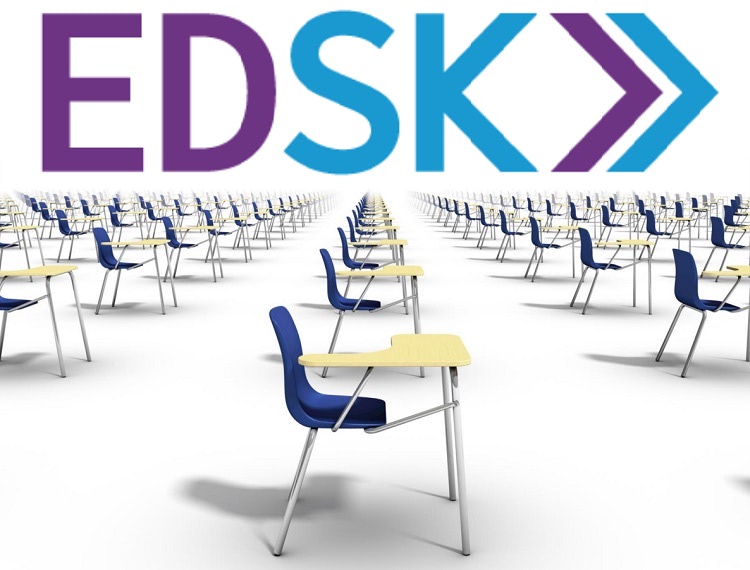A brave new world: How curriculum, pedagogy and assessment can interrelate better

Rethinking assessment’s (@RethinkAssessmt) Bill Lucas (@LucasLearn) welcomes @EDSKthinktank’s latest report, and suggests some ways in which it could go further still to value more of the strengths of young people:
Valuing the full range of young people’s strengths, head, heart and hand
Across the world there is growing dissatisfaction with the way we educate teenagers.
Secondary schools, it is argued, are not teaching enough of what matters in ways in which it can be both understood and applied in the real world.
The prevalence of high-stakes examinations during and at the end of Secondary education, it is increasingly argued, compounds the problem. For the demands of assessment always drive decisions about curriculum and pedagogy.
The education system in England has become unhelpfully clunky with a lack of clarity about the respective roles of secondary schools, colleges and those offering apprenticeships.
At Rethinking Assessment, a unique alliance of school, college and system leaders from all sectors and phases, along with researchers and thought-leaders, we believe that the assessment system in England is in a mess. Nothing short of a wholescale rethink will ensure that we really value the full range of young people’s strengths, head, heart and hand.
A powerful analysis of what is wrong
The recent publication by EDSK, Re-assessing the future by Tom Richmond, is a welcome contribution to the debate.

There is much to agree with in EDSK’s analysis of what is wrong:
- The anachronism of GCSEs in an era when students remain in education until 18.
- The reductionist, narrowing pressures of EBacc and Attainment 8 on the secondary curriculum.
- The pernicious undervaluing of subjects such as Design and Technology and Art and Design.
- The outrageous cost of GCSEs and other level 2 qualifications.
- The focus on 30 hours of largely paper and pencil examinations and the stress this puts students under.
- The iniquitous algorithm which dooms a third of all those who take GCSE to ‘fail’, and
- The consequences for FE which then picks up the pieces.
Changes to curriculum, assessment and accountability
The nine EDSK recommendations cover three broad areas:
- Restructuring schools into lower and upper secondary, extending key stage 5 by a year and combining key stages 2 and 3. Proposals are for a common lower school curriculum and for this only to be delivered by schools, not colleges.
- Replacing GCSEs with a new Lower Secondary Certificate made up of suite of computer-based assessments. These will focus on the understanding of key knowledge expressed as a series of overall scores and a series of percentile figures showing the proportion of candidates who achieved a lower score. Practical subjects will continue to run practical assessments as well.
- Replacing Progress 8 and Attainment 8 with two new measures, broader in scope, spread over rolling 3 years. National standards in lower secondary would be measured by sample testing not related to individual schools.
The devil is in the detail
The idea that secondary education should pivot at age 15 not 16 is, on first sight, a bold one. The proposal that expensive GCSE exams should move to short computer-based tests has an obvious appeal in terms of its resilience and cost. And the notion that school standards could be better be measured at 15 or 16 by sample testing is excellent.
But the detail of some of the proposals invites further reflection.
Decisions at 15 not 16. Delaying specialisation for GCSEs from 14 to 15 is definitely attractive provided the lower secondary curriculum is engaging for all.
But the suggested curriculum:
- Could be seen as a watered down version of EBacc
- Misses out some key aspects of competence such as oracy, collaborative problem-solving and creativity and critical thinking
- Currently defines curriculum to exclude elements of character or learning capability
- Misses opportunities for inter-disciplinary, real-world learning
- Could accentuate the disengagement of many students for whom this kind of curriculum would be less attractive than the current key stage 4 vocational options they could take.
Could some key competences and aspects of character valued by education systems elsewhere in the world also be included?
Bringing forward the age of specialisation for key stage 5 by a year will offer a clarity of role to FE colleges. It will also require the availability of additional skilled advice and guidance for students about general vocational and apprenticeship routes post 15 and mean that FE colleges will have an opportunity to collaborate with schools in this process.
Computer-based tests. While saving time and money, online tests have limitations unless designed (as PISA does) using scenario-based extended tasks. Unless they are expensively researched and developed (as the State of Victoria in Australia has done, for example) online tests work well for factual recall and relatively simple tests of understanding. They are less effective in assessing skills and the application of knowledge.
Might it be helpful to look at ways of assessing the full range of strengths that we would like to see in educated 15 year olds and consider the best way of doing this first?
Where do teacher assessments fit into this process? There are some exciting developments in online testing from digital badges to digital portfolios; the proposed lower secondary period might be a good time for students explicitly to learn about how to choose their best and most beautiful work for different audiences and how to benefit from feedback when sharing their work in progress.
The Lower Secondary Certificate. Of all the suggestions in this report – and there many good ones – the Lower Secondary Certificate in its current format is the most problematic for a number of reasons:
- It does not yet tell a reader anything about what the student can do, just gives them a percentage score for each subject. Alongside each score it offers a percentile score telling students how many students they out-performed. If GCSEs created a forgotten third, such a certificate could easily create similar unhelpful disappointments compounded by the fact that these are raw scores rather than criterion-referenced statements of achievement.
- Practical subjects appear at the bottom of the list of 14 subjects and the symbolism of their location will not be lost on those who teach and enjoy these subjects, the very ones that elsewhere in the report are rightly described as being under threat. It would be a simple matter to redesign any new certificate as a circle rather than a list, promoting equal valuing of each discipline and visualising sign-posting opportunities for opportunities for interdisciplinarity.
Getting the strategic principles right for curriculum and assessment redesign
Many of the concerns above flow from the four objectives which have been chosen to underpin the EDSK report – rigour, coherence, value and aspiration. For the words seem to be abstractions of course design rather than sharp reminders of what needs to be different if we are going to create a more expansive education today.
We would suggest the addition of breadth, the need, as articulated by the World Economic Forum, Organisation for Economic Co-operation and Development and Brookings Institution, to focus on character and competencies alongside the conventional literacies?
We’d also like to see relevance, a sense of looking outwards to the pressing global issues we face today. The curricula of, for example, Australia, New Zealand and Canada are imbued with ethical and global understanding.
Important too is the need for the assessment system to be evidence-based. As well as the revolution of assessment for learning two decades ago, evidence of the powerful impact of formative assessment on performance, many researchers are now suggesting the ways in which different kinds of assessment, including versions of the digital methods posed by EDSK, can promote deeper learning. Indeed many employers are beginning to use such task based, balanced ‘score-card’ type approaches as screening measures when recruiting employees.
And, whenever we contemplate school it is useful explicitly to recognise the integral connections between assessment, curriculum and pedagogy.
Stepping stones to a better future
EDSK does a really good job in critiquing what is not currently working. It is right that we start to think hard about swapping high-stakes for low-stakes tests at 16 (or 15). In terms of revaluing practical and vocational education, EDSK is also forcing us to reconsider the ways in which the current 14-19 system makes an integrated system very difficult to implement.
The report leaves us on an exciting cliff-hanger arguing that, by 2025, ‘we can move beyond the reliance on high-stakes GCSEs by replacing them with new low-stakes (yet equally challenging) digital assessments at age 15 that act as a staging post for pupils on their journey towards the end of secondary education at age 18.’
This is a serious set of proposals which not only removes GCSEs from the current mix but also makes specific suggestions for how they might be replaced. Bravo!
We look forward to the next instalment of what might happen post 15 and how FE and employers can play different roles in this brave new world.
Be part of the solution
At Rethinking Assessment we are currently working on a range of possible models as to how curriculum, pedagogy and assessment can interrelate across the statutory education system better to value a wider range of strengths of students than are currently acknowledged.
We’d love you to join us.
Bill Lucas is Professor of Learning at the University of Winchester, co-founder of Rethinking Assessment and author of many books including Teaching Creative Thinking: developing learners who generate ideas and can think critically. The views expressed in this article are his own.

Responses